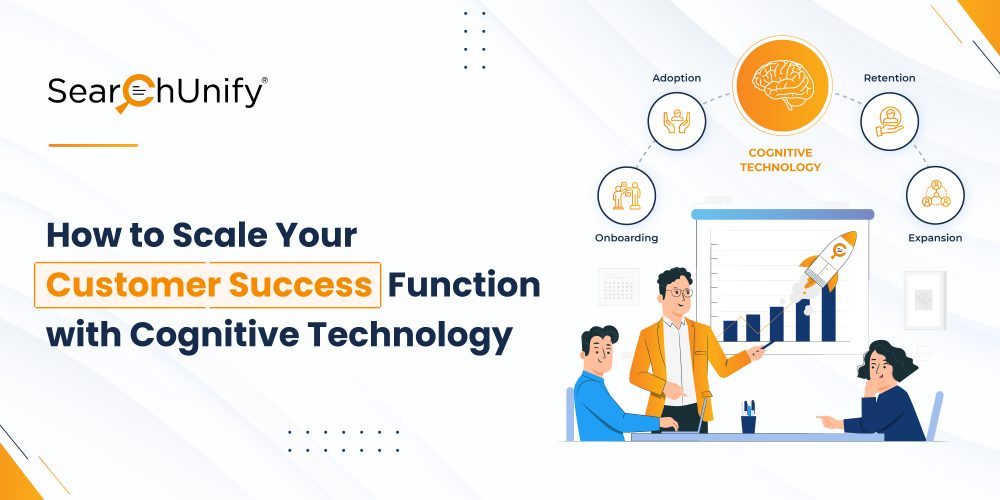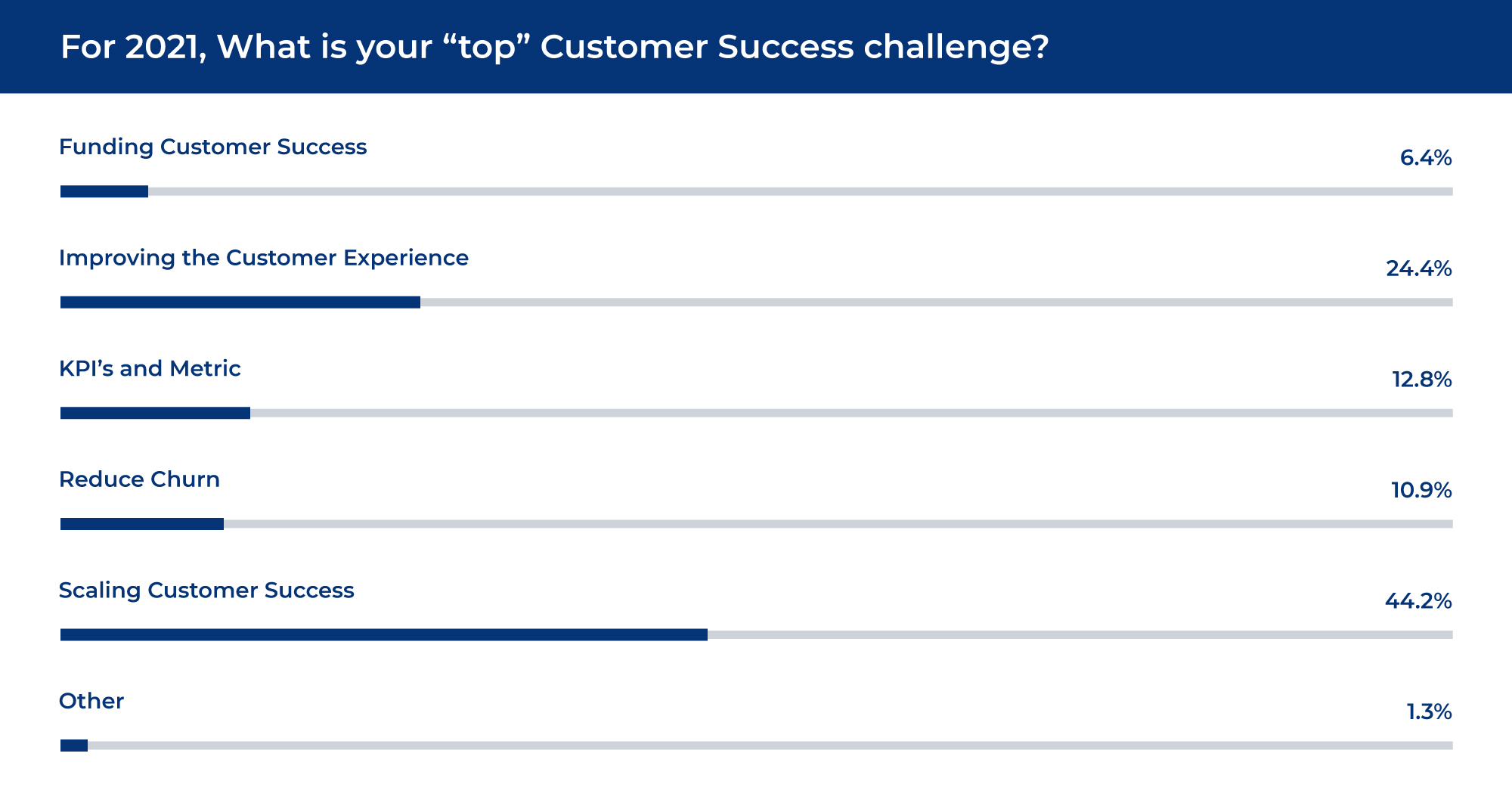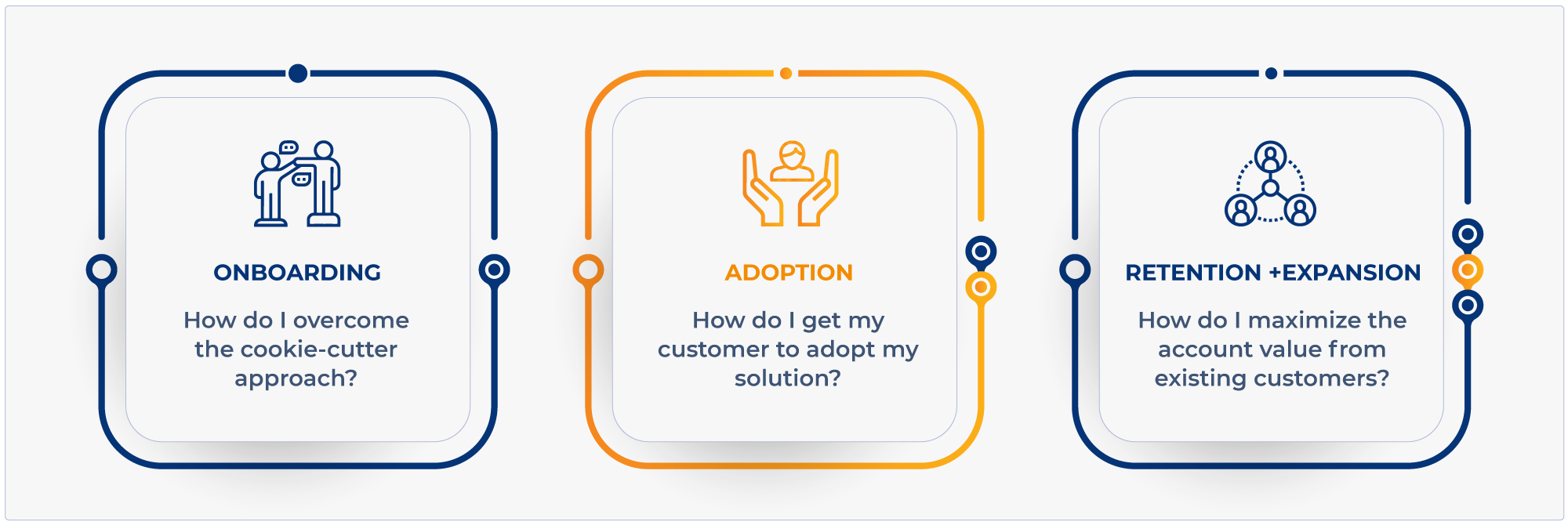

The best way to ensure a continuous stream of revenue, especially for a SaaS company, is to help your existing customers get more from your product. But how? That is why the customer success function came into being.
In its early days, customer success primarily focused on “fixing the wound” and stopping customer churn. But now, it has a laser focus on delivering real and measurable business value. However, scaling customer success remains an issue. A recent TSIA poll revealed that for 44% of success teams, scaling is the biggest challenge in 2021.


Why is Customer Success So Hard to Scale?
There are many reasons for that. First, a lot of CS teams end up managing support escalations, responding to customer emails, and collaborating with internal teams such as sales, marketing, support, and product. This leaves them with limited time to identify red flags and improve customer retention rates.
Second, even if they carve out time to focus on customers, lack of proper technology poses a giant roadblock and leads to the following challenges:
- Lack of visibility into product adoption
- Siloed or no customer insights
- A reactive approach to managing customer health
And if we look at it through the customer journey lens, the challenges for a CSM are even more profound:


Here are our two cents: customer success teams need to move to a proactive or investigative approach that targets the bigger issues causing customer churn and dissatisfaction. This brings us to the next question-how in the world could a CS team do that? And that too at scale!
Cognitive Technology: The Force Majeure for Scaling Customer Success
According to a UserIQ study, only 25% of customer success teams use a dedicated tool but 64% have plans to simplify their technology stack. Undoubtedly, adding the right technology to the mix is the key to scale customer success efforts. Now, where does cognitive technology fit in the scenario?
Cognitive technology connects multiple data sources across the customer journey to act as a unifier and generate rich insights for your CS team. It uses AI and a multitude of ML techniques to curate personalized experiences for customers throughout their lifecycle. For instance, if the customer is at the onboarding stage, a cognitive engine presents content that would help them better understand your product – such as ‘product tours’ or ‘know us’ tutorials. On the other hand, customers at a more advanced stage will be presented with articles and FAQs more suited to that stage, based on their interests and search history.
On top of this, a cognitive platform provides reports & metrics that help your CS teams to course-correct for better KPIs or react to changing trends. For instance, Customer Health Score is influenced by several factors such as case deflection rate. A cognitive platform generates in-depth reports that pinpoint the bigger issues hindering case deflection such as Searches with No Results, Successful Searches, Direct Pageviews, Session Tracking Details, Top Clicked Searches, and many more. Additionally, it analyzes customer actions and sentiments to suggest the next-best-action that’ll help improve adoption and retention.
Hence, cognitive technology is your safest bet when it comes to scaling customer success function effortlessly. But having said that, you need to fully understand the many roles cognitive tech can play for your CS function to drive the most value.
Watch John Ragsdale, Distinguished VP of Technology Research at TSIA, and Vishal Sharma, CTO of SearchUnify as they shed light on the following:
- How cognitive technology acts as the “force multiplier” for the customer success function
- The role of predictive analytics in personalizing customer adoption, retention, and expansion
- How its adoption can optimize customer success KPIs such as Customer Health Score, NPS, CLV
Click here to get exclusive access to the recording.